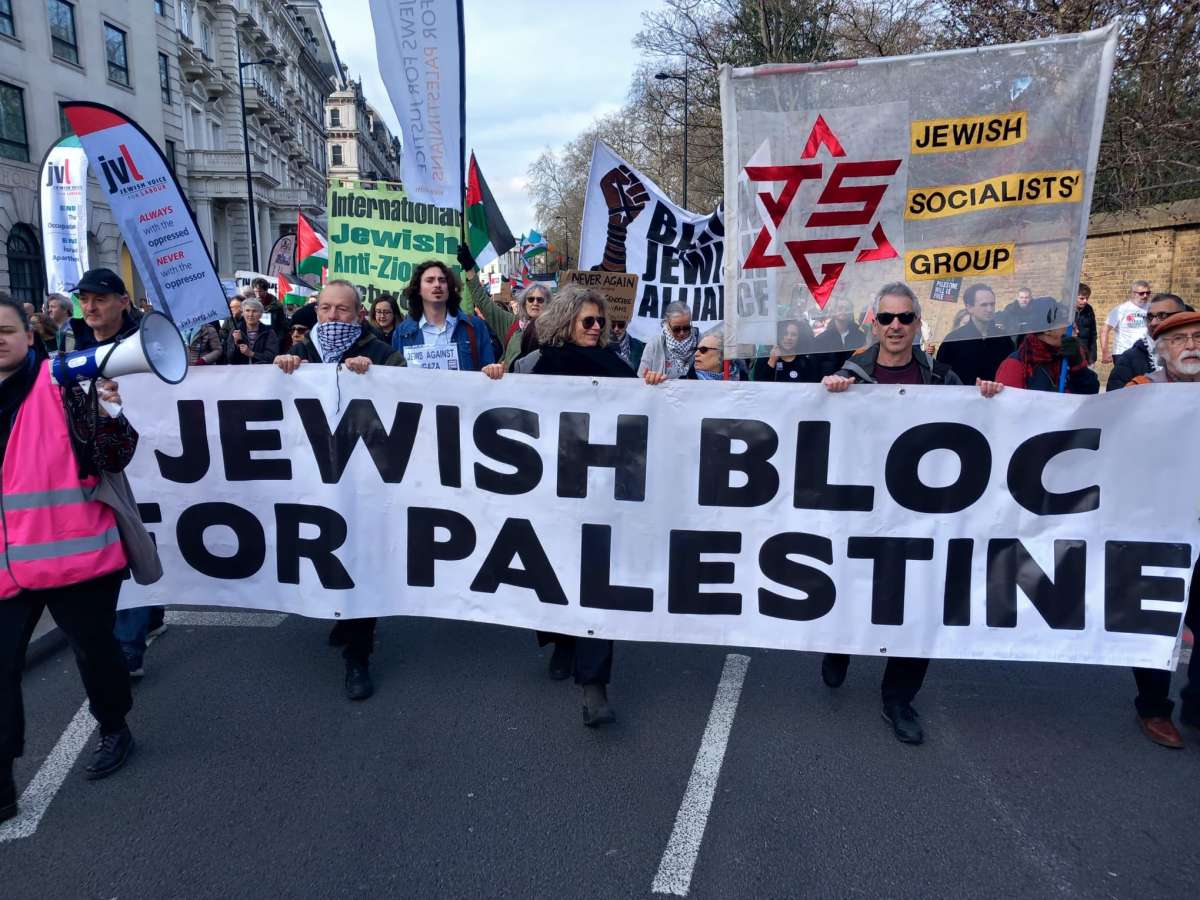Labeling protesters on pro-Palestinian marches in the UK as extremists is divisive, “outrageous” and dangerous, Dame Sara Khan has warned…reports Asian Lite News
Thousands of protesters are expected to gather again in central London to call for an immediate ceasefire in Gaza, the fifth major pro-Palestine demonstration in the capital so far this year.
Saturday’s protest comes a day after Dame Sara Khan, a UK government adviser on social cohesion, said attempts to portray protesters on pro-Palestinian marches as extremist were “outrageous” and dangerous.
Khan, who is carrying out a review of the resilience of the UK’s democracy for Michael Gove, said such claims risked further dividing the country.
The Palestine Solidarity Campaign (PSC) said its latest march began at noon at Hyde Park Corner and finished at the US embassy in Nine Elms.
The Metropolitan police has provided a map that attenders must follow to avoid being in breach of section 12 of the Public Order Act 2023. A section 14 condition is also in place that requires anyone who was participating in the PSC demo to assemble on the south side of Park Lane.
The force said the protest must end with the crowd dispersing by 5pm and “anyone who fails to comply with these conditions will be dealt with by officers”.
The Met commander Karen Findlay, who will oversee policing across London on Saturday, said: “To minimise the impact of the protest we have consistently used our full range of legal powers over the last five months to manage these protests, and we will be doing so again this weekend.
“We are clearly operating in a context where we understand our Jewish and Muslim communities continue to be highly concerned about antisemitic and anti-Muslim hate crime and their own sense of safety in London. We recognise the very real anxiety and fear of individuals who are worried about perceived or actual threats they are subject to.”
Met officers will again be supported by colleagues from forces across the UK. The force said the protests since October had required 35,464 officer shifts and more than 5,200 officer rest days to be cancelled in addition to costs of £32.3m.
There is also a Million Women Rise demonstration in support of International Women’s Weekend in the capital on Saturday, which includes a rally at Trafalgar Square.
The former home secretary Suella Braverman has been condemned for describing the pro-Palestine demonstrations as “hate marches” and the government’s commissioner for counter-extremism, Robin Simcox, wrote in the Daily Telegraph on Friday that London had been “permitted to be turned into a no-go zone for Jews every weekend”.
Speaking to the Guardian, before Simcox’s comments were published, Khan said: “I think it’s really important that we don’t conflate those protesters, somehow saying or portraying them as somehow as being all extremists.
“What I’ve been really uncomfortable with over the last couple of weeks is the kind of argument that they’re all Islamist extremists on these demonstrations. I think that’s actually outrageous.
“Some are not even pro-Palestinian people, just anti-war.”
The Israeli offensive was launched after the 7 October Hamas attack, which killed 1,200 people, mostly civilians.
Israeli strikes have killed more than 30,000 Palestinians in Gaza since October, two-thirds of them women and children.
‘Calling pro-Palestine protesters extremists is outrageous’
Labeling protesters on pro-Palestinian marches in the UK extremists is divisive, “outrageous” and dangerous, a government adviser has warned.
Demonstrations against Israel’s military campaign in Gaza have drawn hundreds of thousands of people to the streets of London and other major cities in the UK since Oct. 7 last year.
They have drawn criticism from senior Conservative politicians, including former Home Secretary Suella Braverman, who called them “hate marches.”
However, Dame Sara Khan, who is conducting a review into British social coherence and the resilience of democracy, told The Guardian that politicians need to be wary of using divisive rhetoric.
“I think it’s really important that we don’t conflate those protesters, somehow saying or portraying them as somehow as being all extremists,” Khan said.
“What I’ve been really uncomfortable with over the last couple of weeks is the kind of argument that they’re all Islamist extremists on these demonstrations. I think that’s actually outrageous.
“Some are not even pro-Palestinian people, just anti-war. There are clearly Jewish people there, there’s a whole range of people there, and to try to frame these demonstrations as Islamist extremism is completely far-fetched and untrue.”
Last week, Prime Minister Rishi Sunak claimed that pro-Palestine protests had “descended into intimidation, threats, and planned acts of violence.”
This week, the government’s commissioner for counter-extremism, Robin Simcox, wrote in the Daily Telegraph: “We will not have become an authoritarian state if London is no longer permitted to be turned into a no-go zone for Jews every weekend.”
However, the government’s independent terrorist legislation reviewer, Jonathan Hall KC, warned: “When you’re thinking about something as important as the right to protest, there doesn’t seem to be a solid enough basis for curtailing that because I think we can all think of causes very personal to us that we would want to protest an awful lot and that will make some people very, very unhappy indeed.”
The government is expected to announce a new definition of extremism next week, which will inform what organizations it is allowed to work with.
ALSO READ-EU Launches Gaza Aid Project
